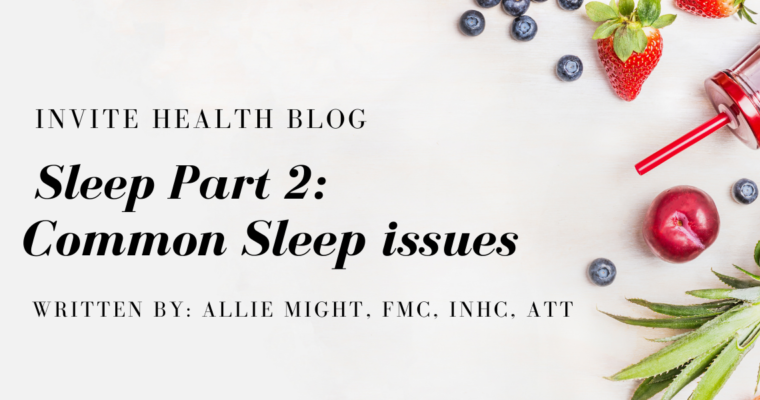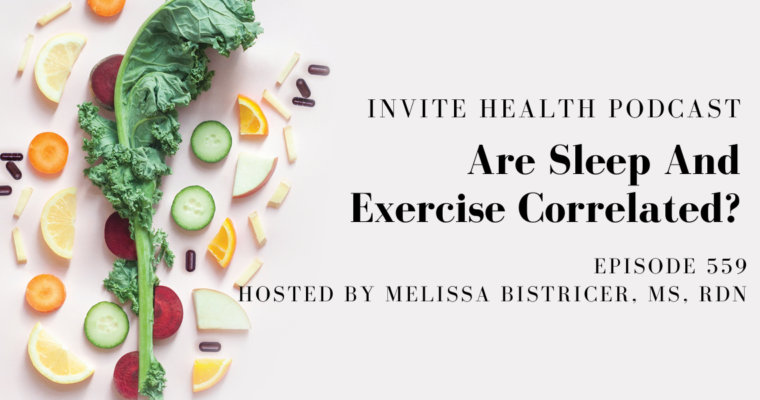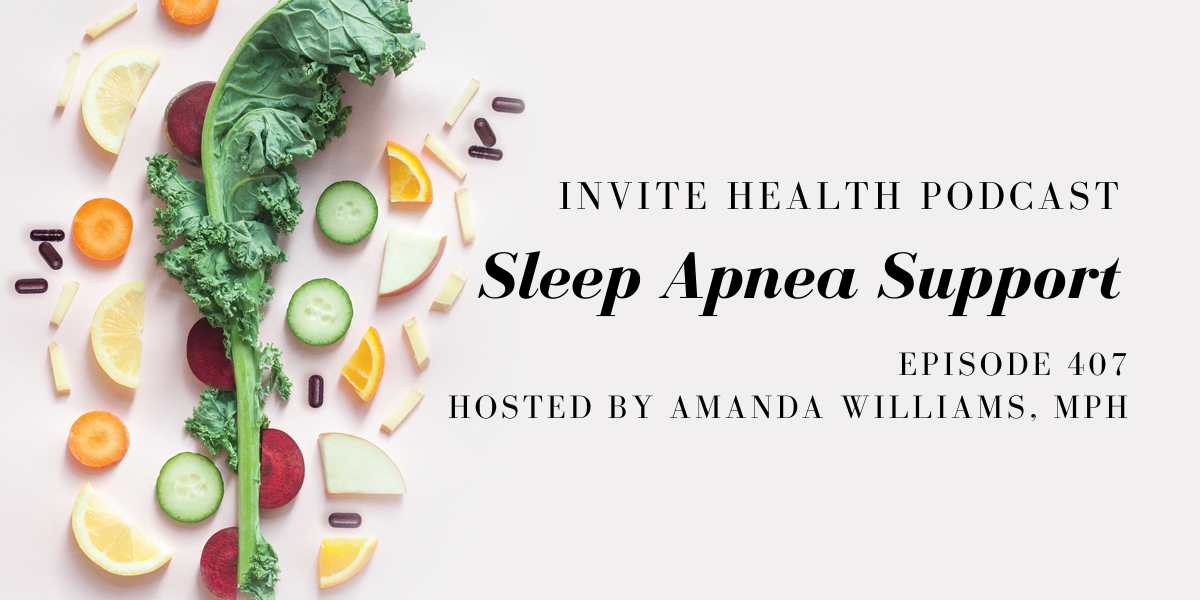sleep apnea
InViteⓇ Health Podcast, Episode hosted by Amanda Williams, MPH
Subscribe Today!
The average American does not get adequate sleep each night. Most people should be getting somewhere between 7 and 9 hours of sleep, but many Americans cannot achieve this, no matter how hard they try. This can affect so many aspects of your health. If you’re not getting adequate sleep, this can create problems with your blood sugar, metabolic rate, blood pressure and more. We also know that certain medications and certain health conditions can make sleep worse. Today, I want to talk about sleep in the setting of sleep apnea.†
What you should know about sleep apnea
Many times, people don’t recognize how common sleep apnea is and it’s often overlooked. Many people go undiagnosed because they never go in and have a sleep study done at a sleep center. You probably know someone who has been prescribed a CPAP machine, which is utilized as the primary treatment for sleep apnea.†
Sleep apnea is associated with an increased risk of other health issues, including high blood pressure, cardiovascular disease, Type 2 diabetes, cognitive dysfunction and autoimmune issues. There are also certain characteristics that may make you more prone to developing this condition. This includes being overweight and having seasonal allergies or allergies in general. Sleep apnea is also more common in men than in women. Our risk of developing this issue may also increase with age.†
THE BENEFITS OF PROBIOTICS FOR ALLERGIES – INVITE HEALTH PODCAST, EPISODE 124. Listen Now>>
One of the biggest signs of sleep apnea is that they’re snoring, gasping or choking while they’re sleeping. There are also other indicators, including feeling tired all the time during the day, having a dry mouth or sore throat when you wake up, trouble focusing during the day, struggling to do basic tasks and being irritable.†

Supporting healthy sleep and respiration
We can look at different nutrients that you can include in your routine that have been clinically studied for their potential to be beneficial for sleep. One of these nutrients is N-acetylcysteine (NAC). NAC does so much, not only as an antioxidant, but it also helps with the thinning of the mucosal membranes throughout the sinuses and respiratory tract. For many people, when they utilize NAC, they have found that that was very helpful.†
NAC: THE INFLAMMATION BATTLING, ANTIOXIDANT-BOOSTING AMINO ACID – INVITE HEALTH PODCAST, EPISODE 128. Listen Now>>
We can also take a look at Vitamin C, Vitamin E and coenzyme Q10. Coenzyme Q10 helps to enhance mitochondrial energy production and may help to support respiratory function. If you’re doing your basics every day, like a multivitamin, coenzyme Q10, omega-3 fatty acids, Vitamin C and Vitamin E, you’re going to really be well ahead of the game.†
We also recognize that low Vitamin D levels have been a place of interest when it comes to obstructive sleep apnea. Researchers have found that many people who have obstructive sleep apnea also have insufficient or deficient Vitamin D levels. When they got their Vitamin D levels back to a normal range, they saw significant improvement across the spectrum, not only when it came to the apnetic episodes, but also when it came to blood glucose levels and markers for inflammation.†
We can look at B-vitamins. Maintaining healthy homocysteine levels may also be a place to turn to when it comes to optimizing the way that your respiration is occurring. Then, we can always look at the gut-brain connection by making sure that we are maintaining a healthy microbiome. All of these things have been shown in clinical trials to be places to turn to. It’s always better to be proactive than reactive.†
In this episode, Amanda Williams, MPH discusses how sleep apnea impacts overall health and wellness. She describes the different symptoms associated with this condition and offers recommendations for supplements that can help support healthy respiratory functions.†
Key Topics:
- What is a CPAP machine?
- The different types and symptoms of sleep apnea
- How to maintain good sleep hygiene
- Research on nutrients to benefit sleep
Thank you for tuning in to the InViteⓇ Health Podcast. You can find all of our episodes for free wherever you listen to podcasts or by visiting www.invitehealth.com/podcast. Make sure you subscribe and leave us a review! Follow us on Facebook, Twitter and Instagram at InViteⓇ Health today. We’ll see you next time on another episode of the InViteⓇ Health Podcast.







